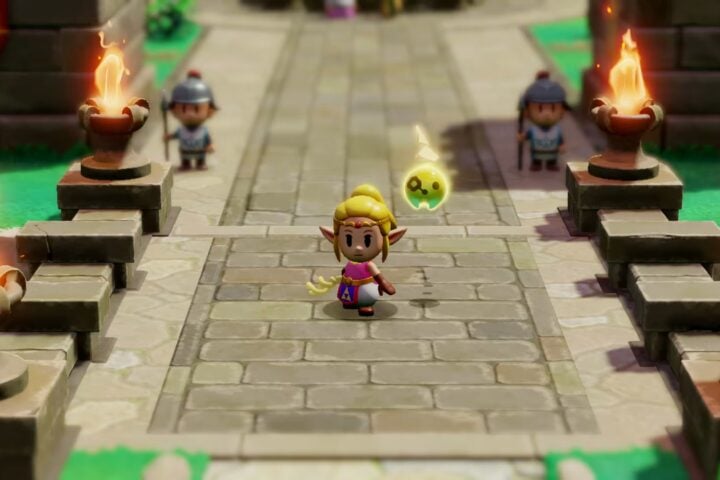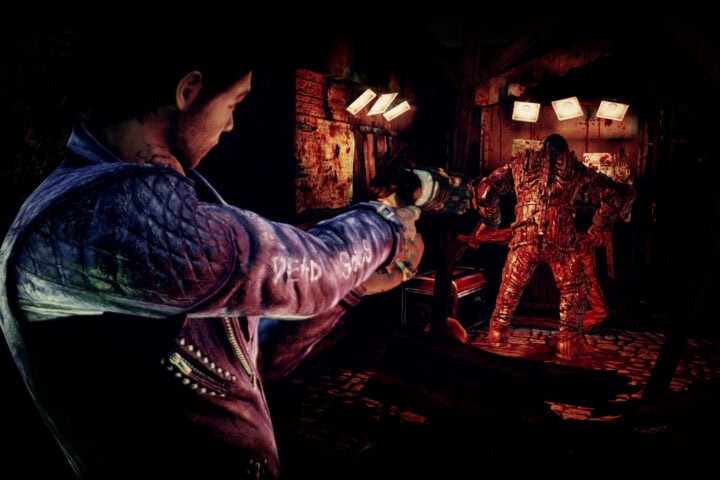Studio Zero’s Metaphor: ReFantazio is a brilliant rebuttal to those who think that politics have no place in video games. If the screaming metaphor of the title weren’t clear enough, the game’s opening sequence begins by flipping open a book as an unseen voice breaks the fourth wall, asking you to name not just the protagonist, but yourself, the person who will be guiding them. Every inch of what follows in this stylish fantasy successor from the Persona team is a message to you about the perils of unchecked anxiety and the societal ills that stem from inequality and discrimination. Not for nothing are the monsters in this world called Humans.
The extent of ReFantazio’s subtlety is in slapping a magical steampunk sheen over everything to provide some distance from what’s essentially a playable election. Guidance through your Archetypal class-based transformations is provided by a magically imprisoned author named More (as in Saint Thomas) who’s written the utopian novel that inspires your idealism. Both the game’s and the characters’ confidence in their ideals for a land of true equality is refreshing, though even if you disagree with any plot points here, it’s hard to find any faults with this finely tuned take on the turn-based Press Turn combat system of Shin Megami Tensei. Harmony between characters and their chosen Archetypes is key, as you must exploit (and defend against) physical and elemental weaknesses in order to get additional actions.
At the start, the game luxuriates in its worldbuilding as you, a young human-looking Elda—one of the 10 tribes that make up the United Kingdom of Euchronia—travel with your fairy companion to the royal capital. The pacing is purposefully slow, driving home how disgusted other races are by you, regardless of where you find yourself. It also serves to emphasize that ReFantazio is as much about the day-to-day life of Euchronia’s people as it is about your quest to assassinate the devious general who killed the king and cursed the prince.
Yes, you’ll be exploring dungeons, but you’ll also be honing the virtues like Imagination and Tolerance by interacting with the citizenry, and you’ll be building long-term relationships with key figures who, in turn, can unlock your full potential in combat. In likening the quid-pro-quo social aspects to a political campaign, ReFantazio actually makes a smoother transition between the social schmoozing and campaign battling than the last several Persona games.
About 10 hours into the campaign, and through some magical shenanigans, you’ll find yourself competing in a tournament to determine who’ll become the successor to the throne. This plot device is a slick way to spread the action over three in-game months—of afternoon and night actions—and as a tour of the kingdom’s capitals and a few of the smaller towns or communities.
Each of these locations serves as a hub for a pivotal event—one of the trials for the tournament—and introduces a large central dungeon that may take multiple in-game days to complete. Through it all, ReFantazio never loses sight of the smaller pieces of the whole picture, encouraging players to also explore the smaller caves, towers, and open outdoor areas in order to fulfill sidequests and gather money, resources, better gear, and experience.
There’s always something engaging, something different, to participate in, and this is where the game’s setting really has an edge over the Persona games, where building one’s reputation is mired in real-world chores and jobs. There’s no grind here, and while some may lament losing busy work like demon negotiation and fusion, the job-based Archetype board, which presents players with clear goals for unlocking new skills or swapping out weaknesses, ensures that more time is meaningfully spent in combat, experimenting with flashy cross-class Synthesis skills.
Given the game’s overarching themes, it’s hard not to see such quality-of-life improvements as one more way to comment on the nature of a utopia, about the unrewarding ways in which our time can be wasted. There are obstacles in ReFantazio—you have to fight for what you believe in, after all—but they’re all representations of the game’s themes, not just random tasks. (Even an at first silly quest for bathwater ends up making some points about commerce.)
This is an approximately 80-hour game that respects your time, as well as its characters’ differing beliefs. If anything, there are more than a few areas—like a wintry research academy and a cave with hints of hidden circuitry—that you may wish you had gotten a chance to explore instead of experiencing them through a snapshot or a historical lecture as you pass them by.
ReFantazio has a nearly hour-long, combat-free epilogue that jumps forward in time to demonstrate the consequences of the decisions you’ve made, and it’s not only as compelling as everything prior, but it’s perhaps the most political part of the whole campaign. Here, too, ReFantazio shows you what it values, which is both the big life-or-death boss battles that put your ideals to the test and the ripple effects of their consequences.
This game was reviewed with a code provided by fortyseven communications.
Since 2001, we've brought you uncompromising, candid takes on the world of film, music, television, video games, theater, and more. Independently owned and operated publications like Slant have been hit hard in recent years, but we’re committed to keeping our content free and accessible—meaning no paywalls or fees.
If you like what we do, please consider subscribing to our Patreon or making a donation.




